My Cancer Companion
Receiving a lung cancer diagnosis is a life-changing event. Patients have to process a lot of information, while going through psychological and physiological stress.
In several Design Sprints, we worked with one of the world's leading experts on lung cancer and mesothelioma to create a digital companion for patients to support them on their complex treatment journey and improve their health outcomes.
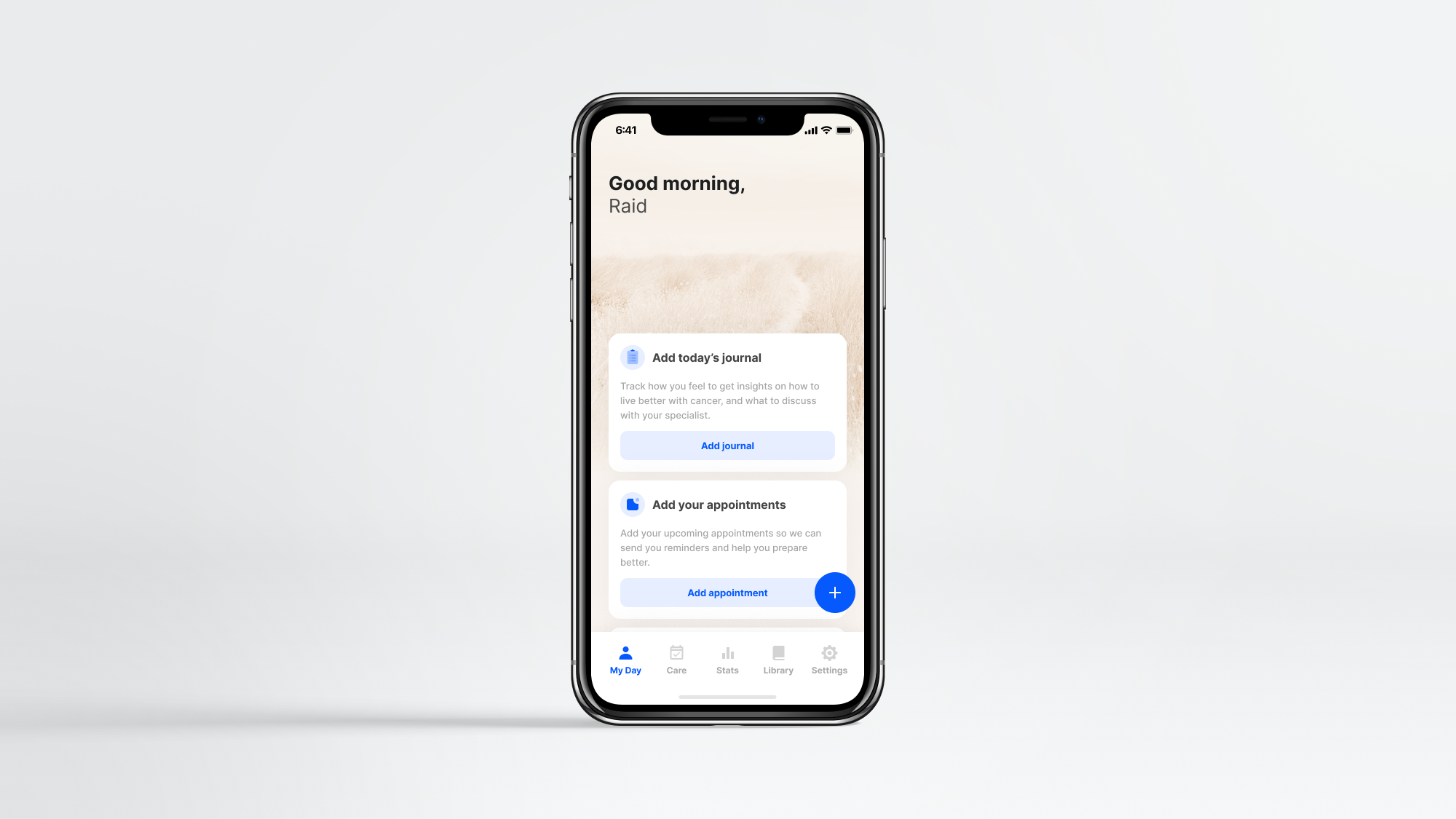
YEAR
2022
ROLE
Product Design Director
TEAM
Jess Leong Cohen and Steve McKenna. Developed by Bothrs.
The Challenge
For patients, the time just before and after receiving a lung cancer diagnosis is very challenging. They have to take in a lot of information, and typically, seek out more on their own. Patients want to understand what's ahead of them. But diagnosing and treating cancer is complex. Different treatment options come with different trade-offs, and not all treatments are suitable for every patient. Furthermore, the prognosis of each patient depends on many different factors that can differ greatly from average five-year survival rates.
The team behind My Cancer Companion wanted to provide patients with guidance and education to help patients navigate this journey better and more informed, and the means to work better with their care team, from diagnosis and treatment to aftercare.
We worked closely with the My Cancer Companion team, conducted interviews and collaborated in a series of workshops. We mapped out a hypothetical user journey, sketched initial ideas and concepts, and fleshed them out before turning them into interactive prototypes that we could test with cancer patients and care specialists.
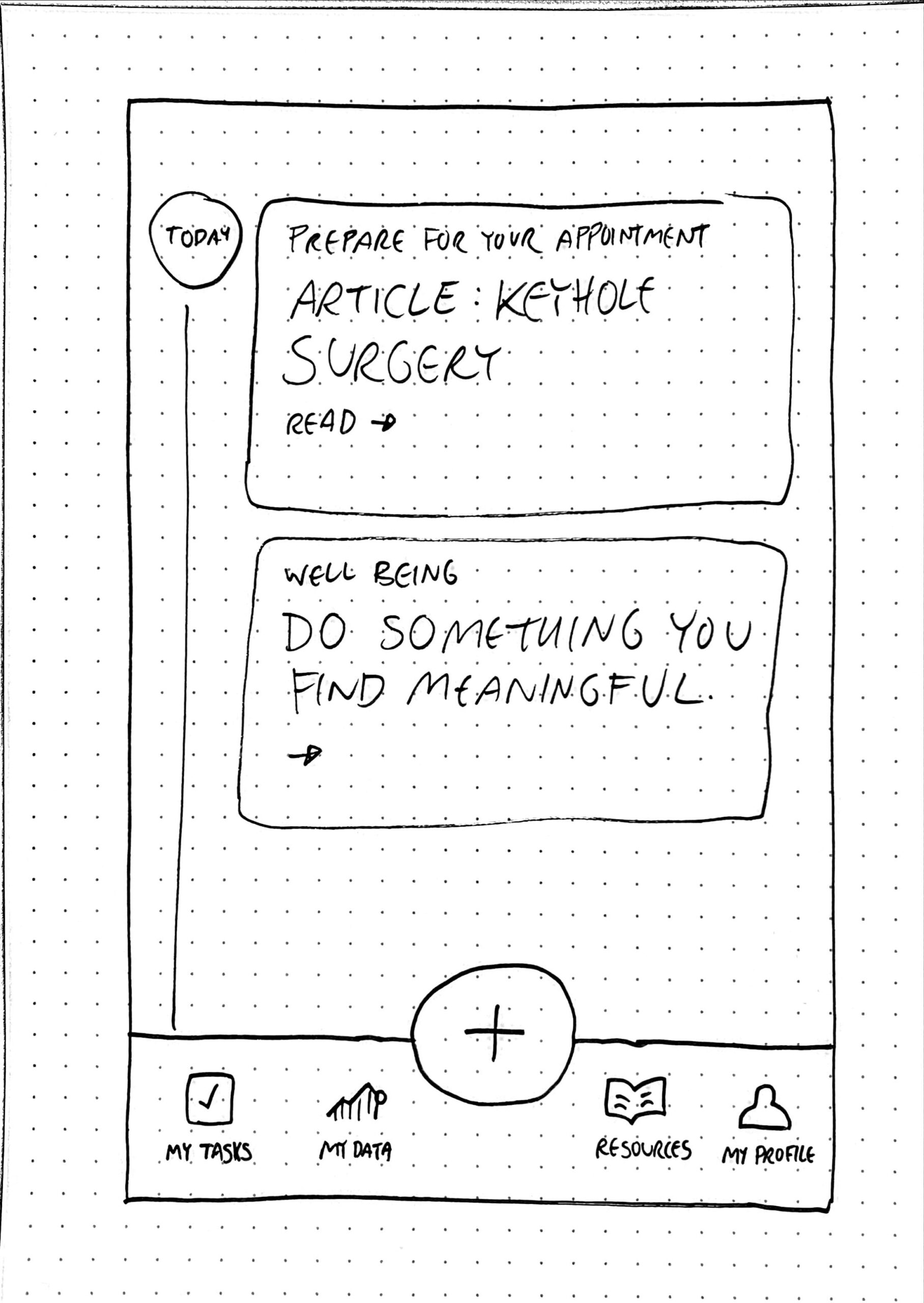
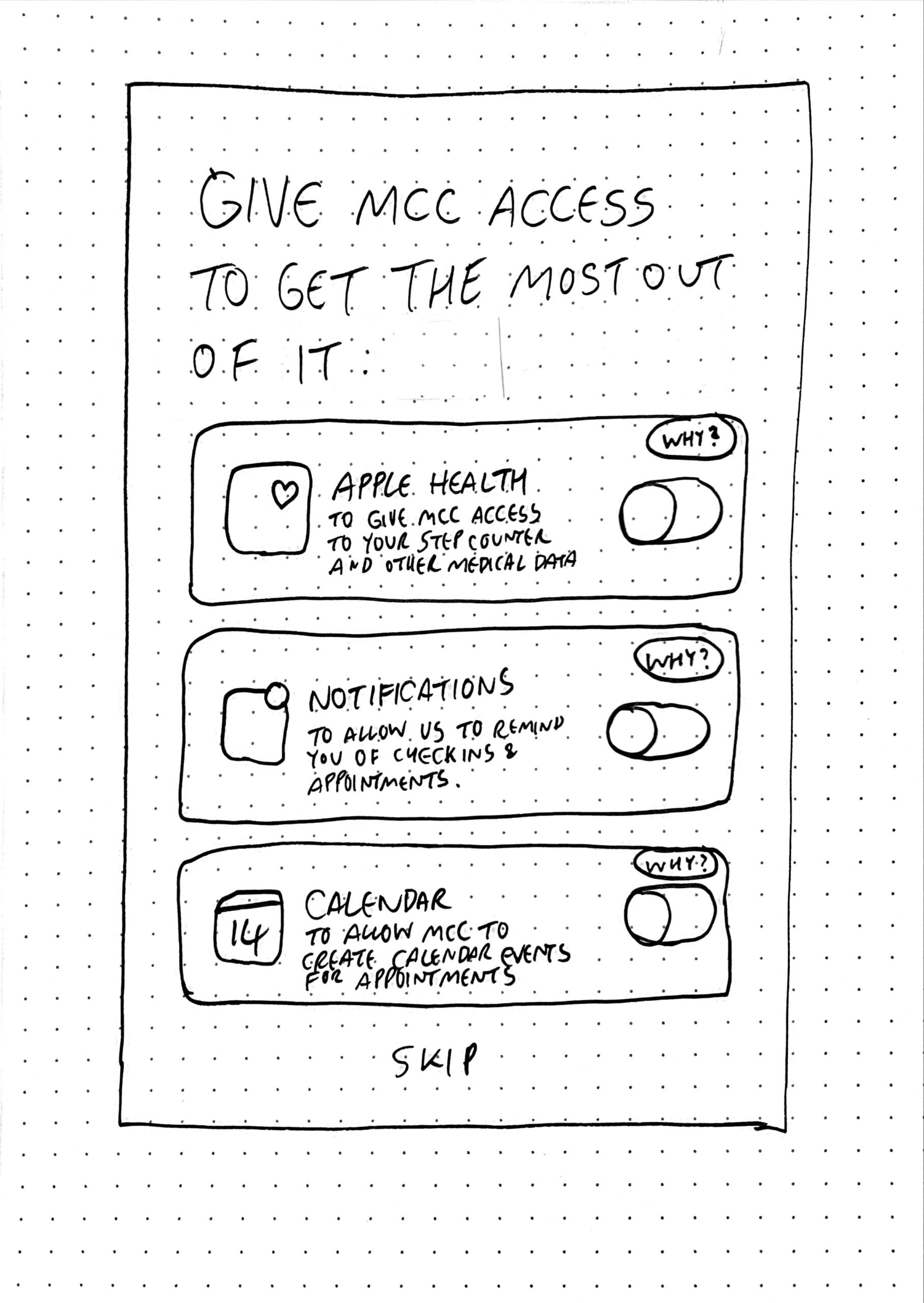
In several workshops with the MCC team, we mapped user journeys and key features
Our Solution
Personalized Guidance
There is no one-size-fits-all approach for cancer patients. Everyone deals with different challenges. Some may have be still waiting for their diagnosis, or have just received them. Others might be about to prepare for their first appointment, while others are already undergoing treatment. And another group of patient might not be in treatment anymore, either because the cancer is in remission, or because they are transitioning to end-of-life care.
In addition to the stress of living with cancer, many patients experience side-effects from their treatments, ranging from nausea, brain fog, tiredness and cognitive impairment. All of this can have a big impact on their quality of life and their mental wellbeing, and needs to be factored in when making treament decisions.
To give patients guidance, the main screen of the companion gives patients clear, personalized tasks for their day. These tasks are a blend of activities to increase their quality of life, preparation for upcoming appointments, and symptom tracking to support their treatment.
Ease of Use
The majority of lung cancer is diagnosed in people aged 65 and older. While a large part of this demographic already uses smartphones routinely, they might feel overwhelmed by dense, complex, or unfamiliar interfaces. Cancer symptoms and the side-effects of cancer treatments can also reduce patients' ability to focus, follow routines, and perform even simple tasks consistently.
These challenges lead us to progressively simplify and streamline the interface. Accessibility, and an intuitive, clear, and easy to use interface are critical to enable patients to use the companion independently.
On first use, each user is going through a short intake survey about their diagnosis and their needs and goals. This data is used to personalize the companion
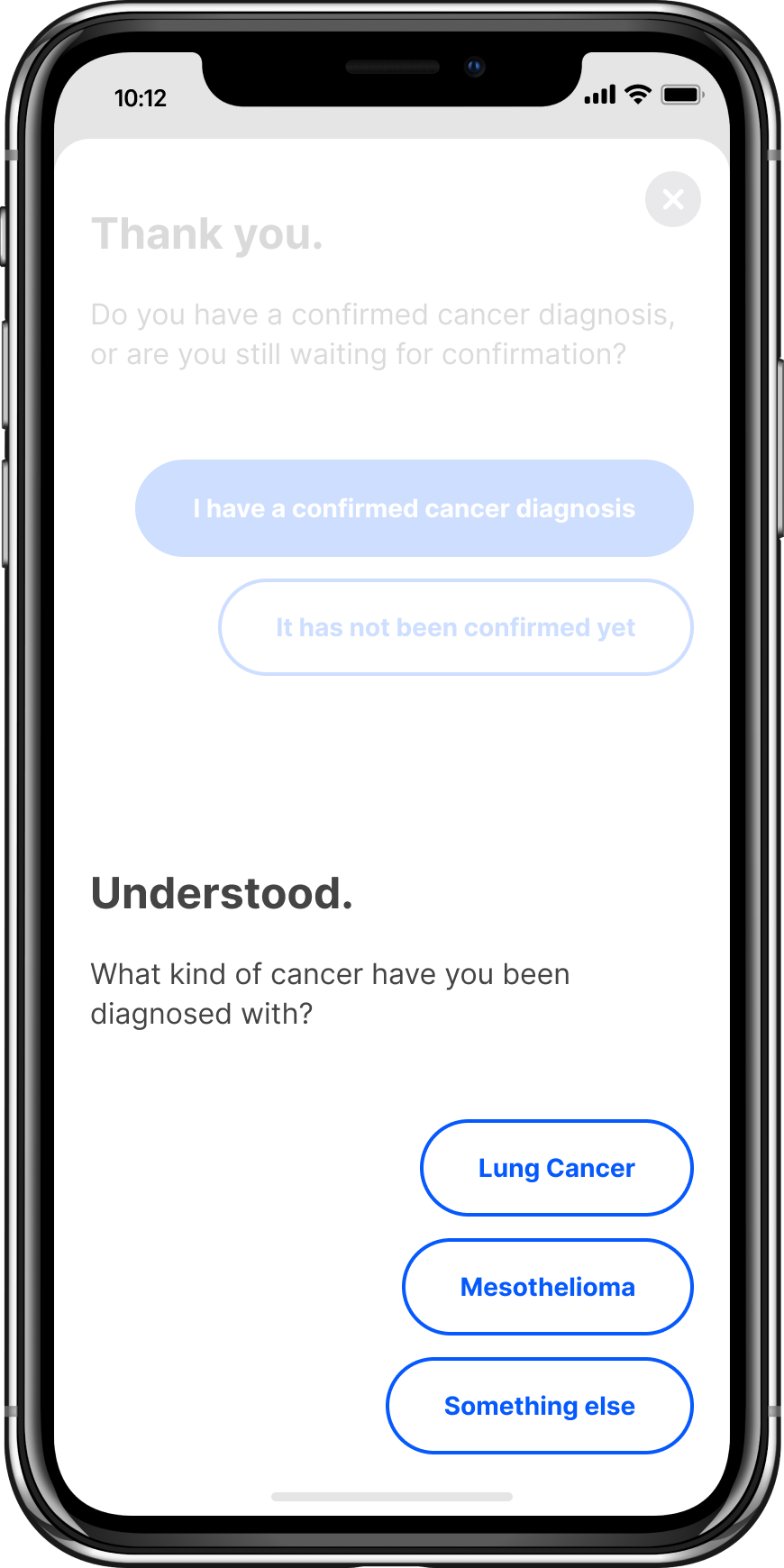
Each day, the app gives patients a clear, easy to follow overview of recommended tasks
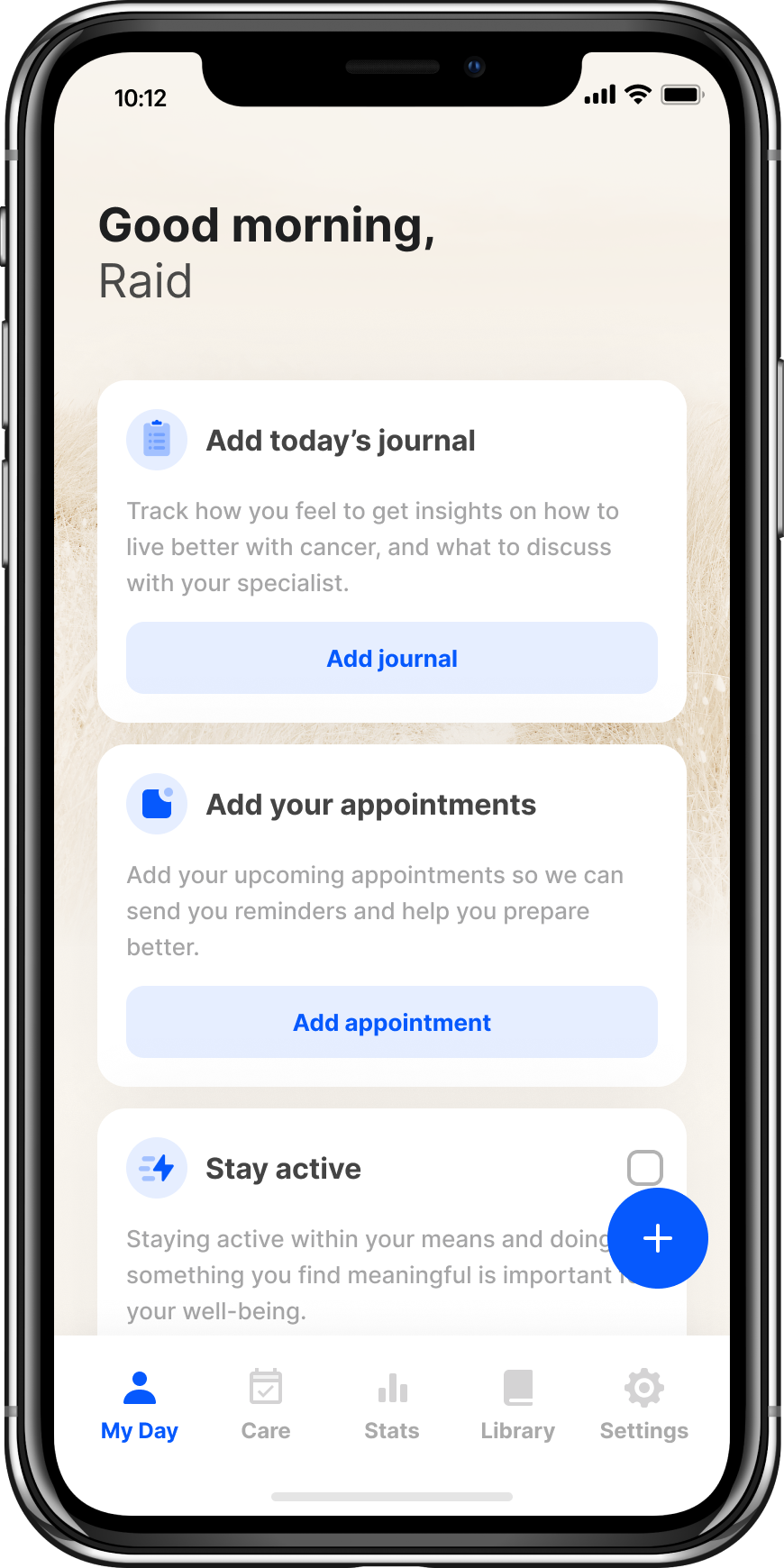
Preparing for appointments
Cancer patients have to manage regular appointments with their care team, and have to process a lot of information that is critical for making informed treatment decisions. While they are typically highly motivated to prepare well for appointments with their care providers, organizing and preparing for appointments with different specialits can be challenging.
To support patients in managing their treatment appointments, the companion can sync appointments with their smartphone calendars, integrates with map apps, and enables sharing appointments with other people. Additionally, patients can add their own notes, "pin" articles from the app, and attach files they might need for their appointment, like referral letters.
Patients can see an overview of their upcoming appointments, including information on what to expect, and how to prepare
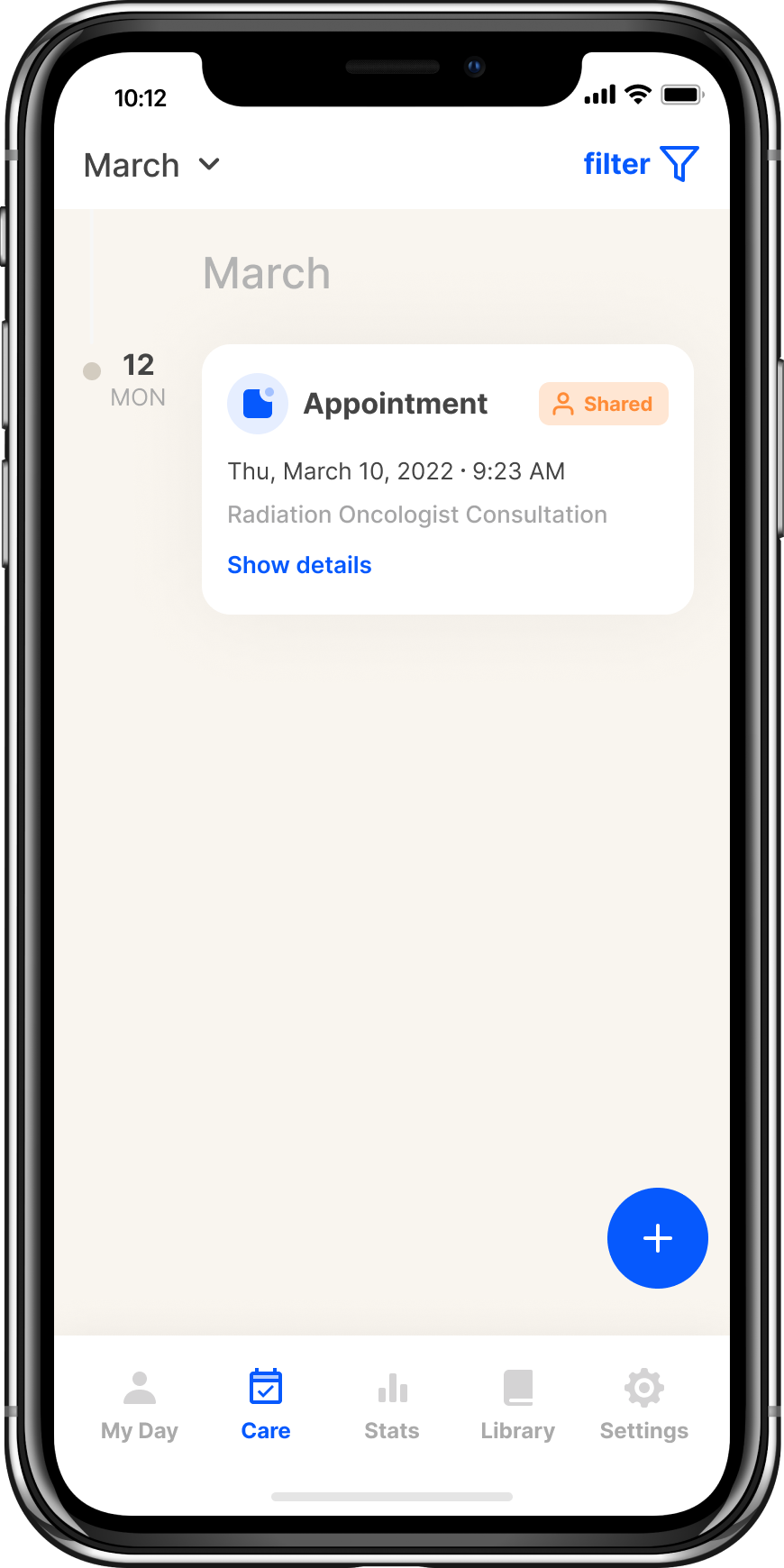
Customizable reminders help patients to keep track of their appointments
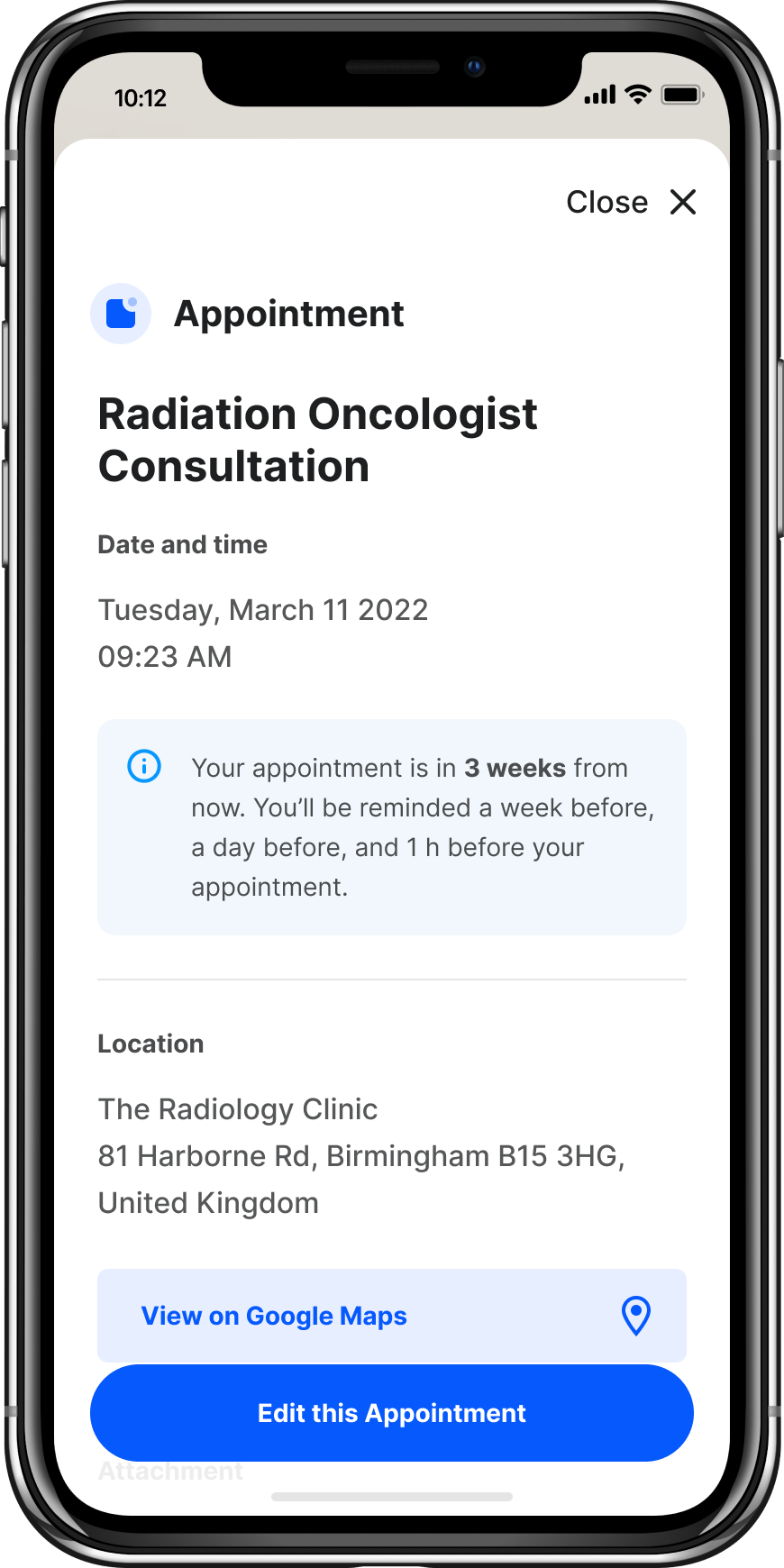
Users may attach files and documents they'll need for their appointment. They can also share their appointment with trusted contacts
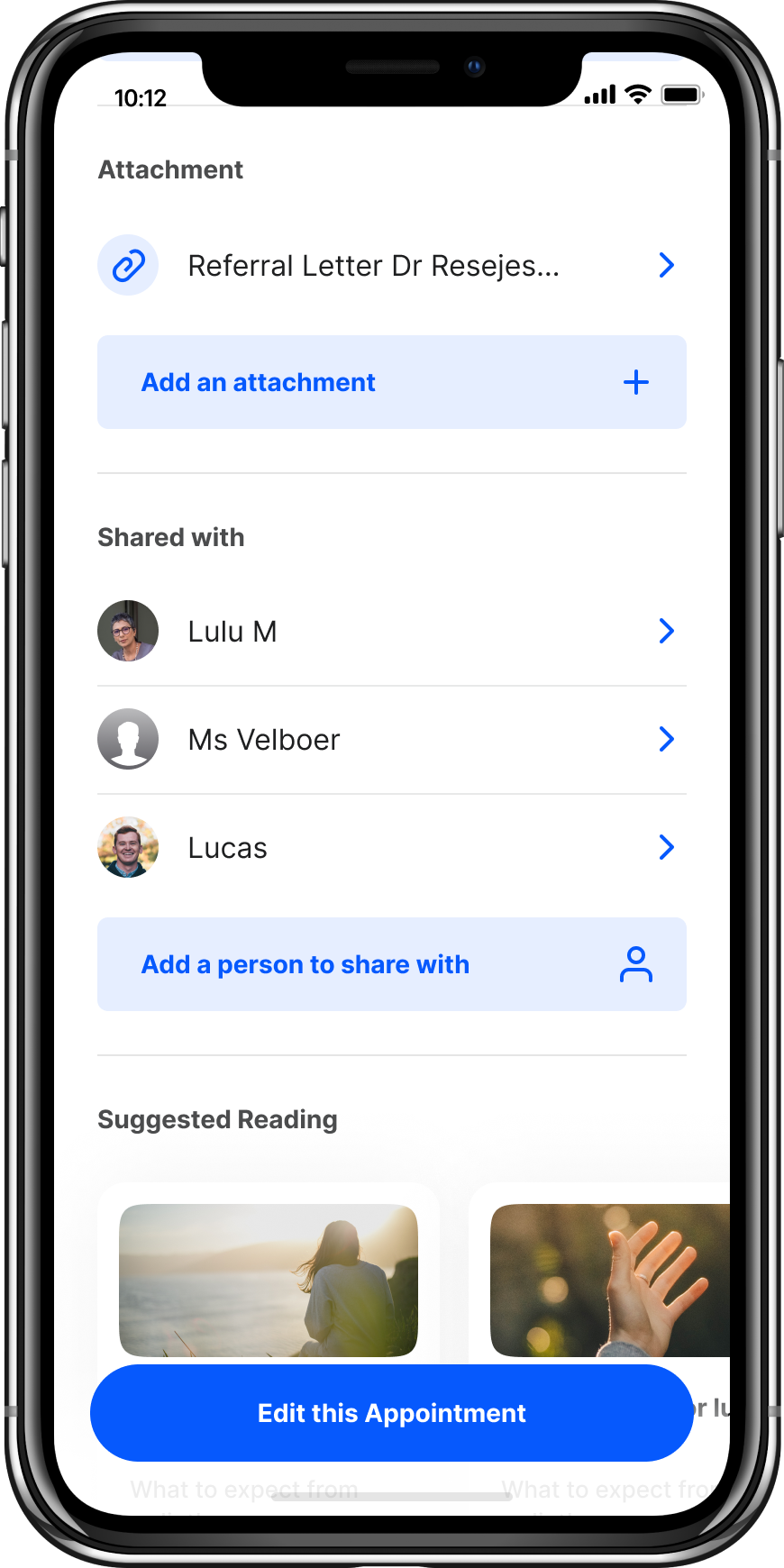
Supporting treatment
The more a patient and their care providers understand how disease and treatment affect them, the better they can make treatment decisions together. It also helps the care team to find more ways to increase or stabilize the patient's quality of life. For this, the companion enables patients to track symptoms and side-effects over time, in a way that is easily shareable with their care team.
To make consistent tracking as easy as possible, it was progressively simplified after user feedback, to reduce complexity, ambiguity, and mental load.
The companion allows patients to track their physical and mental wellbeing, and symptoms
Symptoms are tracked over time, and presented in charts that can be shared with their care provider
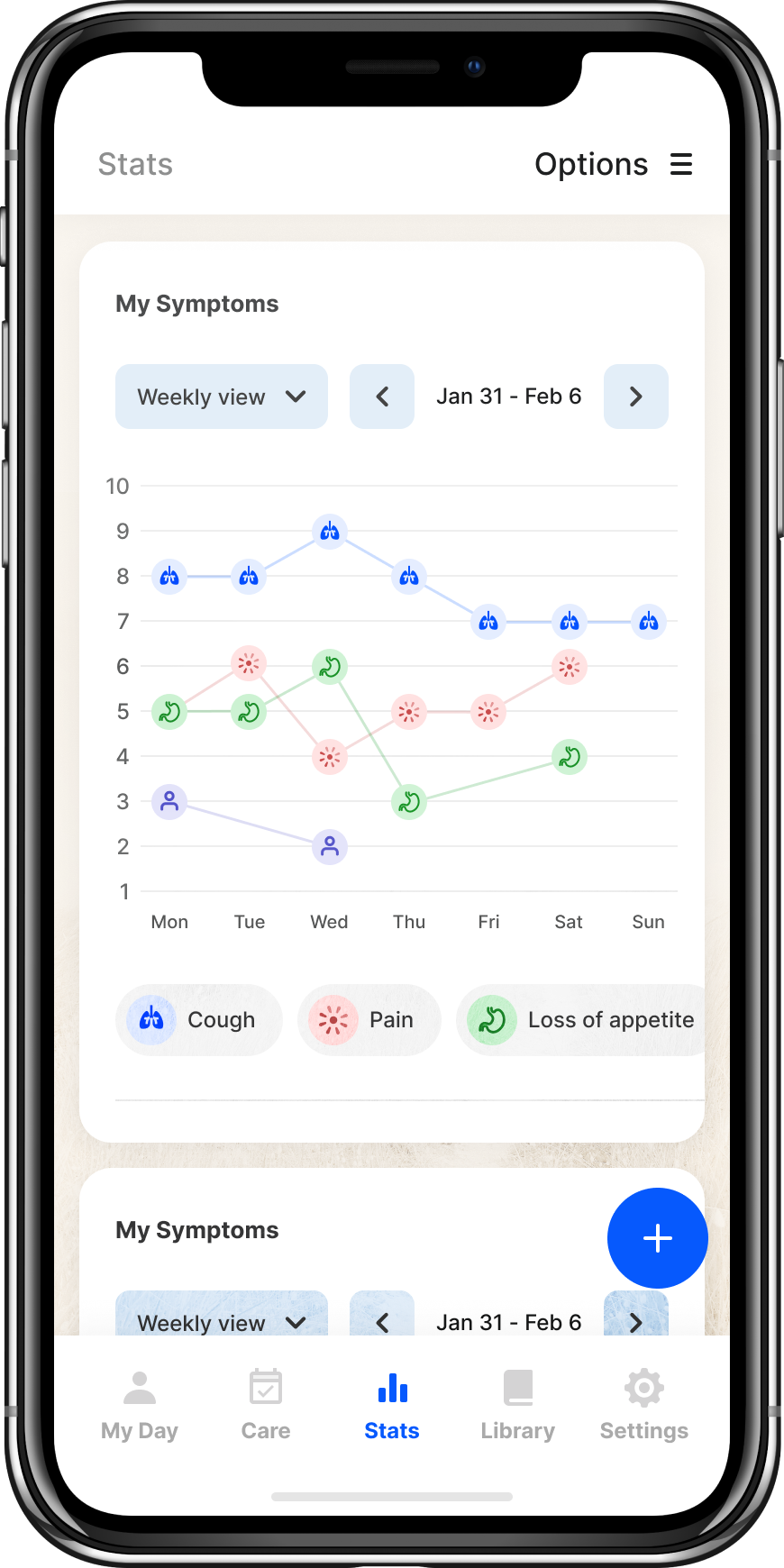
Education
Around the time of their diagnosis, patients are in a rush to seek out information about their disease, treatment options and their prognosis.
But not only is the mass of information very technical and difficult to parse and process without a medical background. Patients are also exposed to information that is out of context, outdated, or even misleading. This can have negative impact on their treatment decisions.
And although new research can lead to new treatment approaches, it can take time for them to trickle down to individual care providers.
To give patients the best, most current, and easiest to understand information, a library gives them access to articles written by top experts and oncology specialists. The library serves content based on the patients diagnosis and their progress on their treatment journey.
Patients have access to a library of expert-written articles, containing the latest evidence-based research. The library suggests content based on the users cancer stage and their treatment path
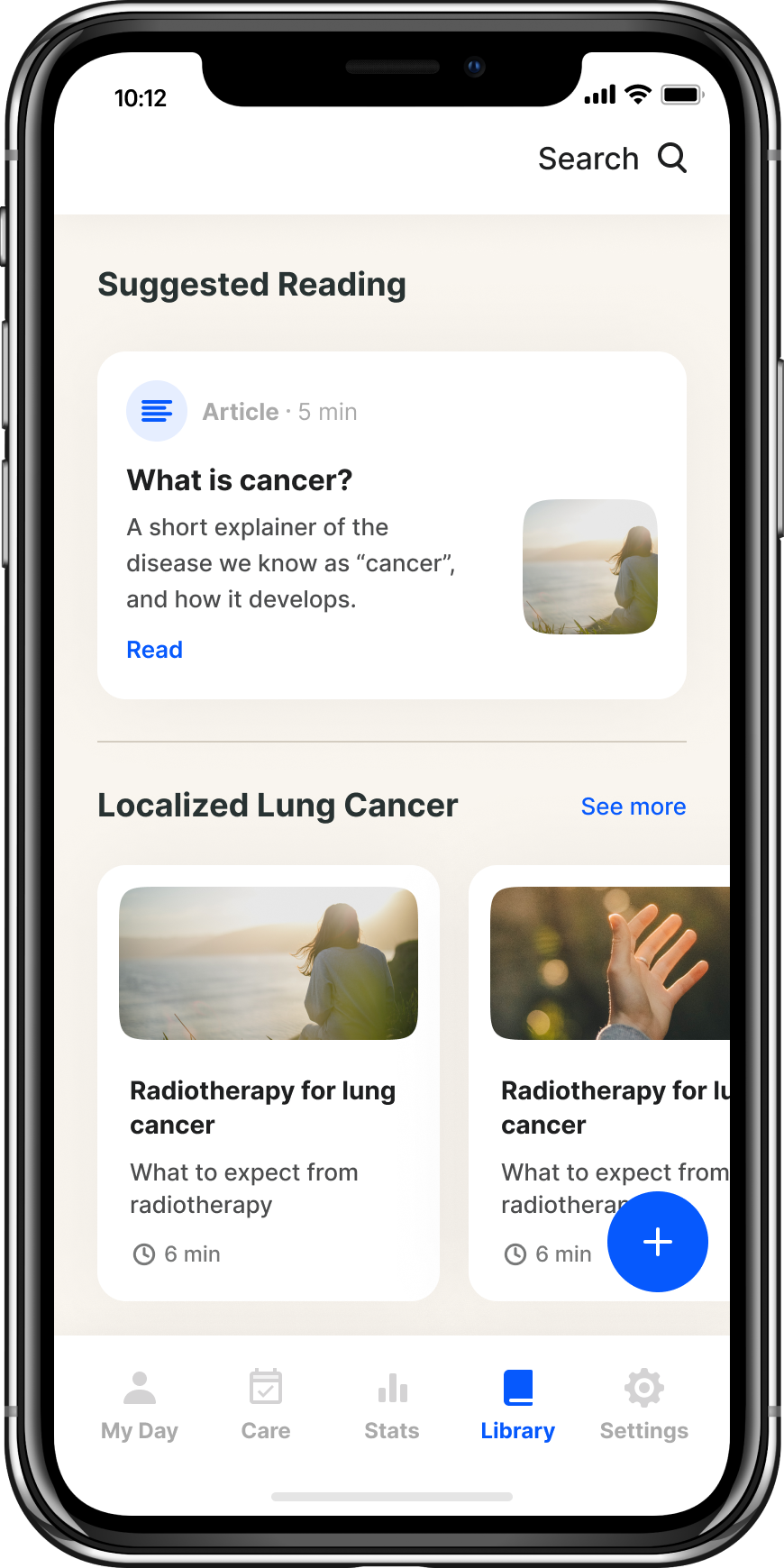
Expert-written articles help patients to understand their disease better, and also gain an understanding of their treatment options. Articles can be attached to upcoming appointments to discuss them with their care provider
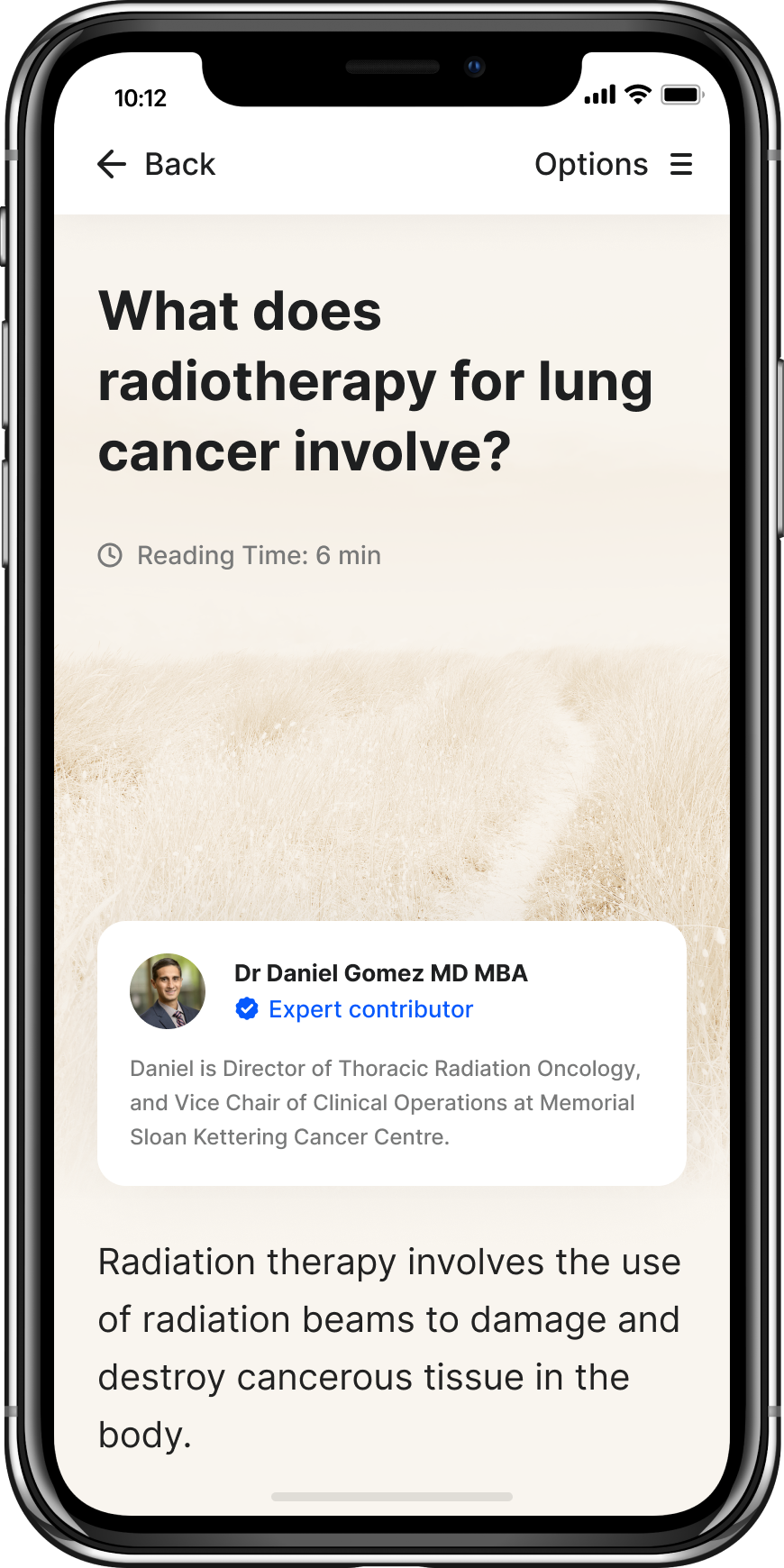
Results
In just 4 weeks, starting with just an idea and a mass of challenges and opportunities, we created a coherent solution concept, represented by 3 interactive prototype iterations of the most important user journeys, validated by user feedback.
We tested prototypes of our concepts in fourteen qualitative interviews over two rounds of testing with different people.
We interviewed cancer patients that were at different points of a typical clinical journey. Some had received their cancer diagnosis recently, while others had been in treatment for a longer time. Another group was not in treatment anymore, with their cancer being in remission and under surveillance.
We also interviewed care specialists, like oncologic physical therapists, to get their perspective on how a companion app might address patient challenges and needs.
The collected feedback and insights allowed us to immediately iterate on the concept, improving clarity and ease of use, adding and revising features, and removing what didn't work.
The outcomes of the Sprint fed directly into technical development, allowing the team to prioritize key features for the development of the MVP.
Selected Works
TIM HÖFER
©2026. All rights reserved